There is always much to learn from quotes and their historical significance. Read on for a collection of quotes and general history from August 25th – 31st.
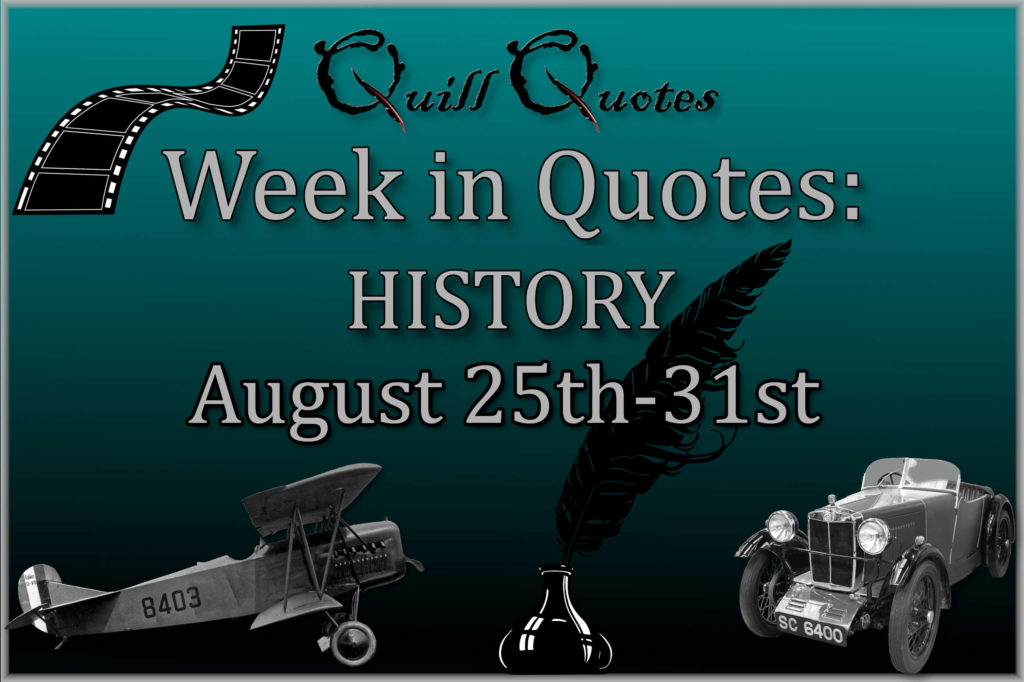
August 25, 1814
“I wanted to see my name on the cover of a book. If your name is in the Library of Congress, you’re immortal.”
– Tom Clancy
On August 25, 1814, the original Library of Congress collection, about 3,000 books, was burned in the U.S. Capitol Building by the British during the War of 1812. Following the Battle of Bladensburg, the British captured Washington, D.C. on August 24th and set many buildings ablaze, including the White House and Capitol. The fires burned into the 25th when a heavy thunderstorm put them out. To begin rebuilding its collection, the Library of Congress purchased Thomas Jefferson’s entire personal collection of 6,487 books in 1815. Today, more than 38 million books are housed in the Library of Congress!
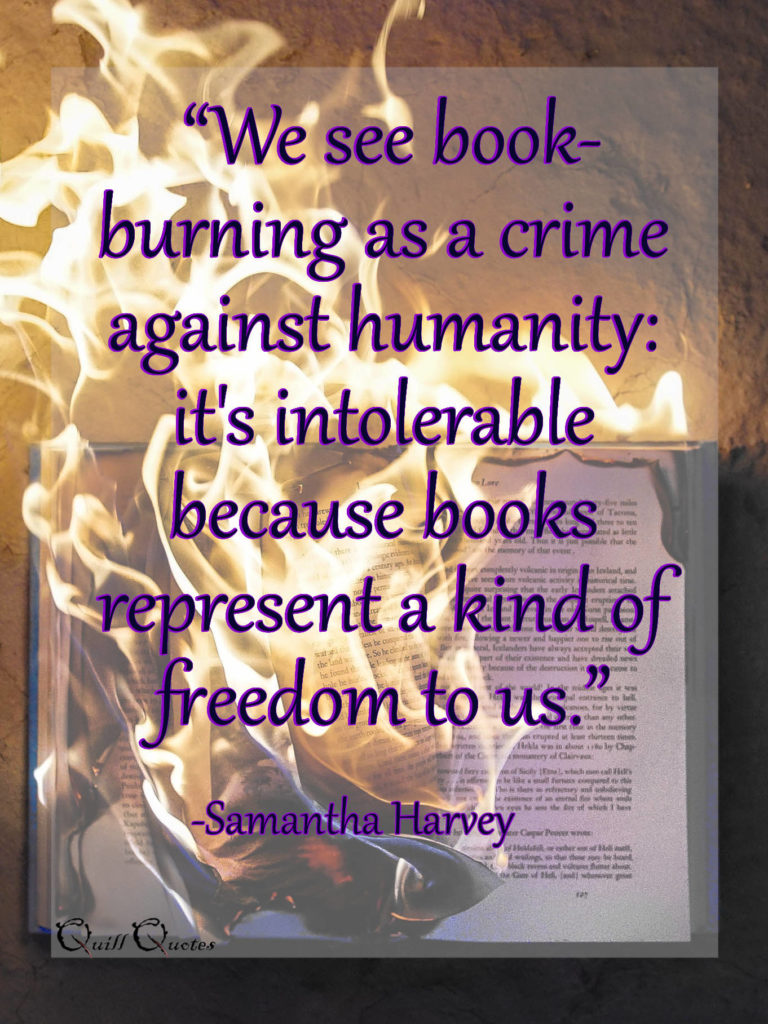
August 26, 1346
“England’s international reputation as a military power was established in an evening’s hard fighting.”
– Andrew Ayton
The Battle of Crécy took place on August 26, 1346, in north-east France between English and French troops. Led by King Edward III, the English had been pillaging towns throughout France for much of the past two months. Eventually, King Philip VI led the French army to confront them. Despite greatly outnumbering the English, between two to three times, the French were defeated, suffering heavy casualties. The English victory was due in large part to the effectiveness of the longbow, having a greater range and fire rate than French crossbowmen. Bombards, an early form of cannon, were also used by the English in what may be the first use of cannons in battle!
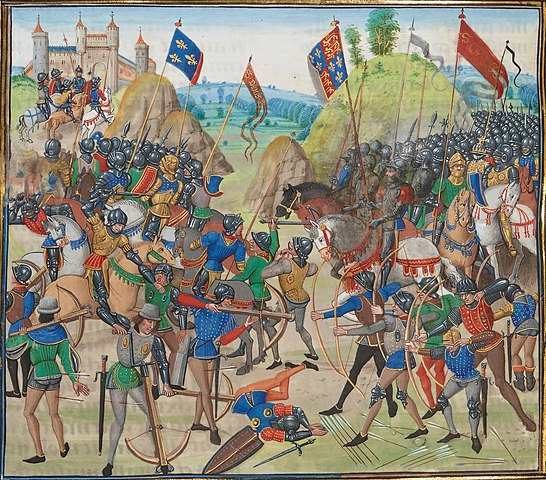
August 27, 1883
“The explosion itself was terrific, a monstrous thing that still attracts an endless procession of superlatives. It was the greatest detonation, the loudest sound, the most devastating volcanic event in modern recorded human history, and it killed more than thirty-six thousand people.”
– Simon Winchester, Krakatoa: The Day the World Exploded: August 27, 1883
On August 27, 1883, Krakatoa erupted in the Dutch East Indies, now Indonesia. In a spectacular Vesuvian type eruption, almost exactly 1,804 years after Mount Vesuvius itself, more than 70% of the Krakatoa archipelago was destroyed falling into the resulting caldera. Tsunamis caused by the massive pyroclastic flows entering the ocean reached as far away as South Africa. The Dutch recorded the official death toll as 36,417, but it could be even higher. The ash and sulfur released into the atmosphere created a volcanic winter lasting five years, reducing global temperatures by an average of 2.2°F (1.2°C). These atmospheric changes also resulted in vivid red sunsets throughout the world.
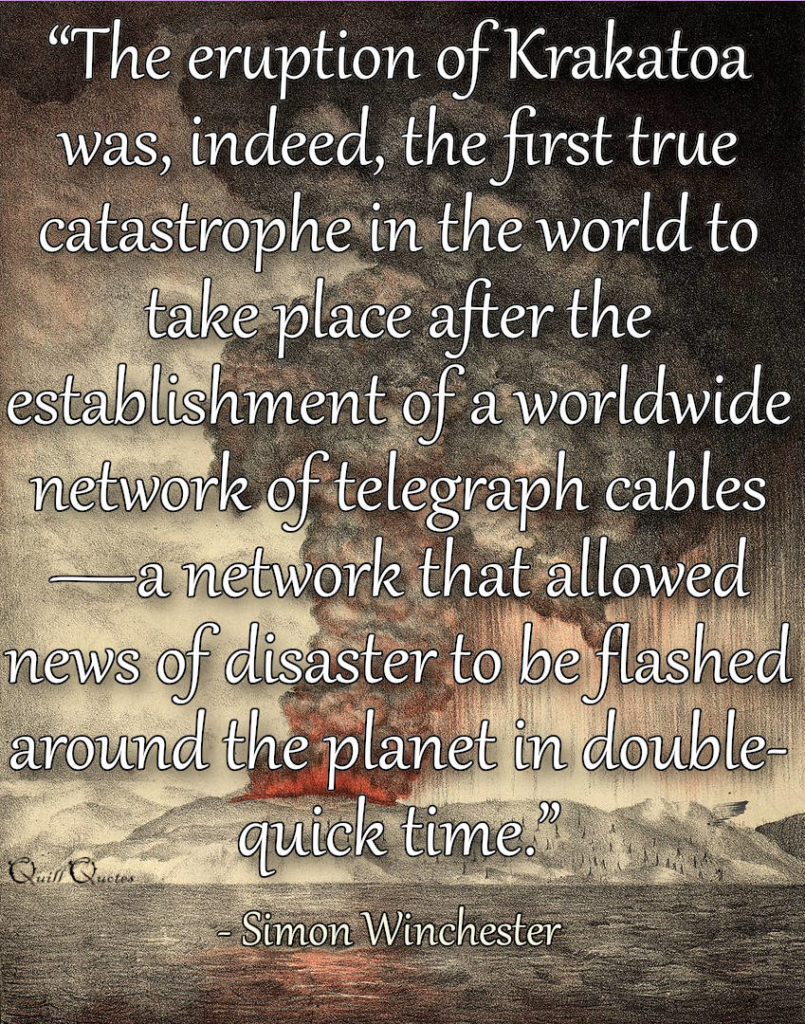

August 28, 1963
“I have a dream that my four little children will one day live in a nation where they will not be judged by the color of their skin, but by the content of their character. I have a dream!”
– Martin Luther King Jr.
Martin Luther King Jr. delivered his famous “I Have a Dream” speech to over 250,000 supporters during the March on Washington, August 28, 1963. Beginning in reference to Abraham Lincoln’s 1863 Emancipation Proclamation, King said: “but 100 years later the Negro still is not free.” He then described the “unalienable rights of life, liberty and the pursuit of happiness” promised by the U.S. Constitution and Declaration of Independence as “a promissory note” on which “America has defaulted.” Using repetitive sentence beginnings throughout the speech, a practice known as anaphora, King concludes with a series of “I have a dream” and “let freedom ring” statements. The speech remains one of the most famous in American history as a defining moment for the civil rights movement.
August 29, 2005
“My heart goes out to victims and survivors of the Hurricane Katrina tragedy and to their families. This disaster will go down in history books as one of the largest natural disasters in U.S. history.”
– Ellen Tauscher
On August 29, 2005, Hurricane Katrina made landfall in Louisiana and Mississippi. At peak intensity, Katrina had been a Category 5 hurricane but landed as a Category 3; the fourth strongest to ever make landfall in the contiguous United States. Extensive damage and casualties resulted, with at least 1,836 people dead and an estimated $125 billion in total property damage. With water reaching 6-12 miles inland, flooding was the main cause of death and damage, particularly in New Orleans. Engineering flaws in the city’s levees allowed over 50 breaches and 80% of New Orleans was flooded. The Hurricane Katrina disaster prompted many national and international emergency response efforts, although their effectiveness has often been criticized and debated.
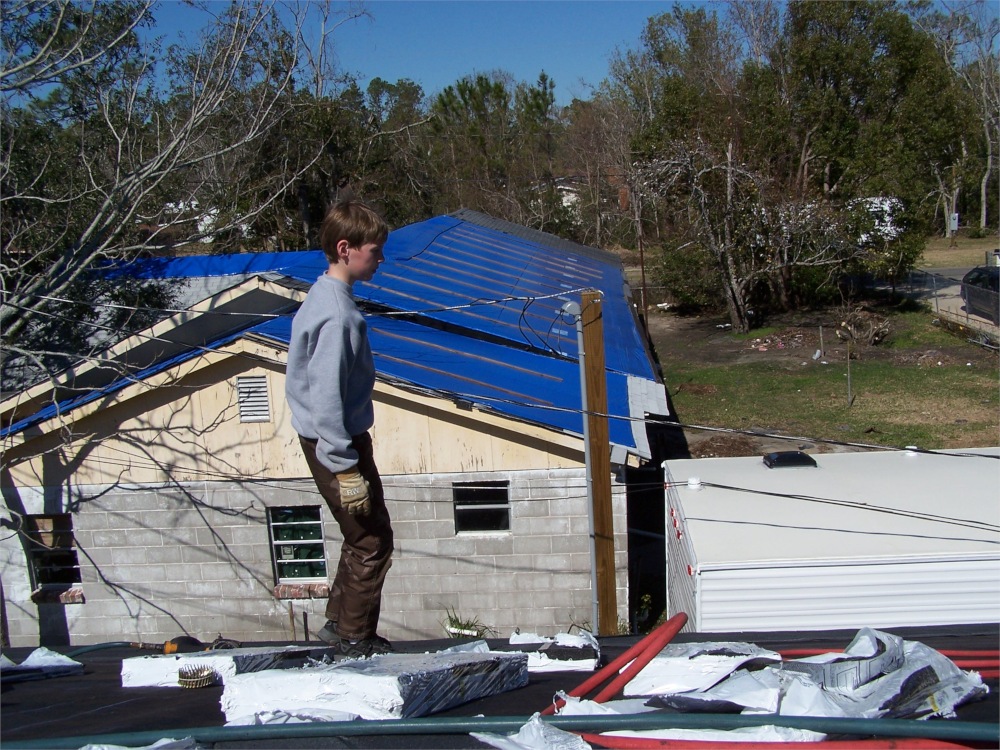
August 30, 1914
“All we know is that, at times, fighting the Russians, we had to remove the piles of enemy bodies from before our trenches, so as to get a clear field of fire against new waves of assault.”
– Paul von Hindenburg
The Battle of Tannenberg ended in a decisive German victory against Russia on August 30, 1914, during World War I. Over five days of battle, the Germans, led by Field Marshal Paul von Hindenburg, surrounded and destroyed the Russian Second Army. An estimated 78,000 Russians were killed or wounded and 92,000 captured, compared with just 12,000 German casualties. Poor communication and the inability to use the East Prussian railway track, due to a different rail gauge, were the biggest contributors to the Russian defeat. Rather than reporting the loss of the Russian Second Army, commander Alexander Samsonov committed suicide. German commanders Hindenburg and Erich Ludendorff earned considerable prestige from the battle.
August 31, 1997
“I like to be a free spirit. Some don’t like that, but that’s the way I am.”
– Princess Diana
On August 31, 1997, Diana, Princess of Wales, died in the hospital from injuries sustained in a car crash earlier that day. In the early morning, she was traveling from the Hôtel Ritz in Paris, France with Dodi Fayed, son of Egyptian billionaire Mohamed Al-Fayed, when their driver lost control and crashed in the Pont de l’Alma road tunnel. Both Fayed and the driver, Henri Paul, were pronounced dead at the scene. Their bodyguard, Trevor Rees-Jones was the only survivor. Although a popular subject of conspiracy theories, the crash was found to be caused by Henri Paul driving while intoxicated by multiple investigations. Princess Diana’s funeral was broadcast worldwide and watched by an estimated 2.5 billion.
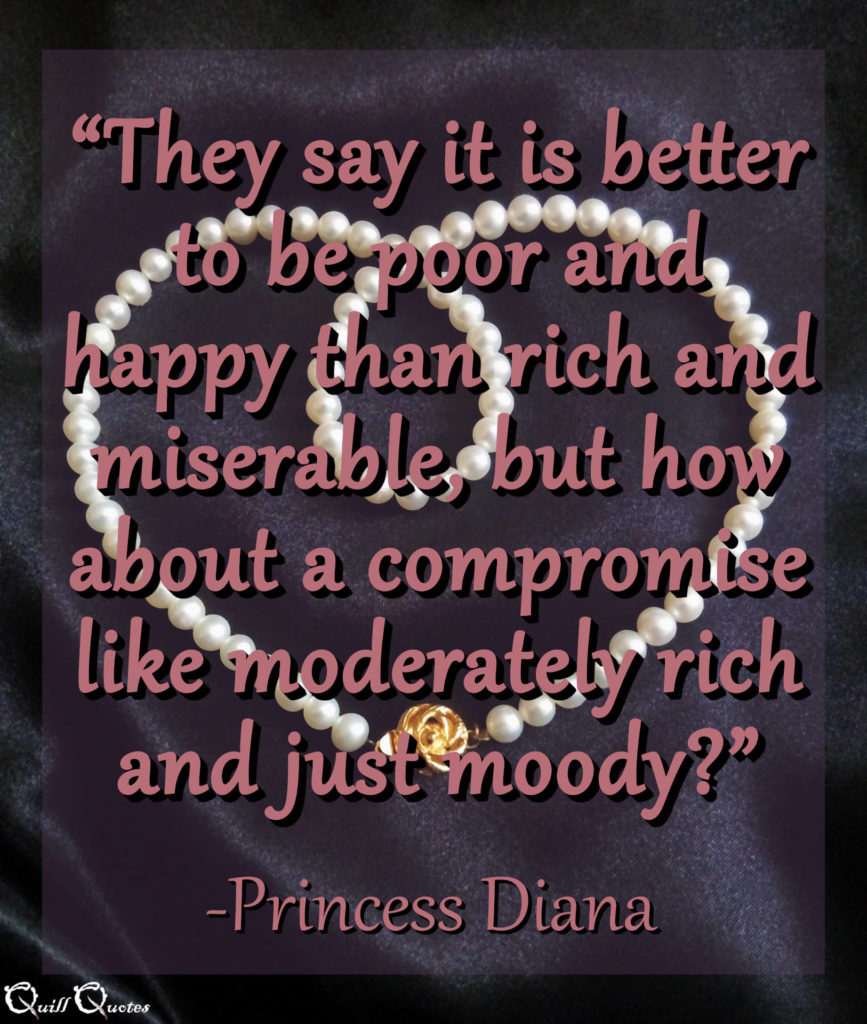
I was too young to remember Princess Diana, but remember the aftermath of Hurricane Katrina well. What do you remember from these events? How about the “I Have a Dream” speech, did you hear it live or do you remember any news coverage afterward? Let me know in the comments!
In case you missed last week’s quotes, see History August 18th – 24th.
To never miss a Quill Quotes post, please subscribe to our free Email Newsletter and follow us on Social Media.
I remember the aftermath of Katrina well. Driving through the affected areas, seeing the devastation first hand, the feelings of extreme shock, learning how much greater affect Katrina had on the homes, the buildings, the infrastructure, the people; much more than what the videos and news media were able to convey.
I also remember the local people pulling together to help each other, volunteers coming in from other areas of the country to assist with labor and supplies, helping rebuild. I remember you on the roof Kevin, working hard under the sun all day, enjoying others company and comradery during the evening meals, and sleeping on cots on the gym floor, readying ourselves for more work the next day.
The devastation was really quite something. Especially when we drove along the beach and saw all the homes with the first floor washed away. Looked like homes on stilts, but weren’t supposed to be. And that was 6 months after the fact, Hard to imagine what it would have been like for those living through it or coming back right after.
I remember Hurrican Katrina it was so alarming how long people had to live in the Superdome. I think the United states has learned from it and worked on disaster plans.
I believe the paparazzi had a part in Diana’s death. I remember the debates on how they were always after her for photos. Hopefully people have learned something from both tragic events.
Prince Charles married Diana so he could produce heirs to the throne. She produced
Heirs for Charles and the queen then was left alone to live a lonely existence. She wisely divorced Charles seeking happiness with someone else.
She died because the media wanted a million dollar photo of her and Fayed. Shame on them. They have to live with themselves for the rest of their lives. She was truly the people’s princess.